MS-ESS1-3
Analyze and interpret data to determine scale properties of objects in the solar system.
-
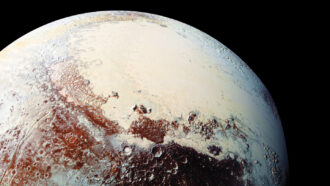 Planets
PlanetsPluto is no longer a planet — or is it?
In the 15 years since Pluto lost its status as a planet, some scientists continue to use whatever definition works best for them.
-
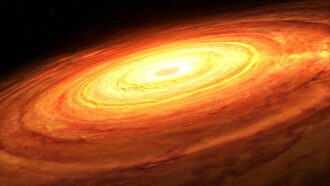 Space
SpaceHere’s an easier new way to weigh a black hole
The timing of flickers in the gas and dust of a black hole’s accretion disk correlates to its mass, a new study finds.
-
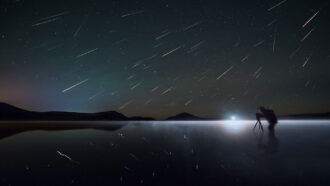 Earth
EarthLet’s learn about meteor showers
Meteor showers happen when Earth’s orbit passes through trails of debris left behind by comets or asteroids.
-
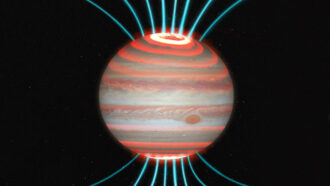 Planets
PlanetsJupiter’s intense auroras heat up its atmosphere
Jupiter’s hotter-than-expected upper atmosphere may be warmed by charged particles slamming into the air above the poles.
By Sid Perkins -
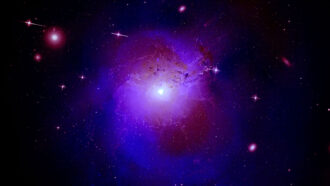 Space
SpaceLet’s learn about dark matter
Dark matter is only detectable by the gravitational pull it exerts on visible objects, like stars and galaxies.
-
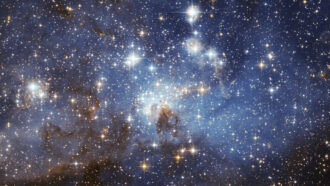 Physics
PhysicsScientists Say: Plasma
In physics, plasma refers to one of the four states of matter. In medicine, plasma describes the part of blood that ferries cells, nutrients and more throughout the body.
-
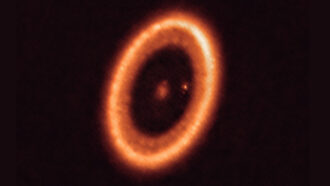 Space
SpaceThis image may be the first look at exomoons in the making
These observations offer some of the best evidence yet that planets around other stars have moons, or exomoons.
-
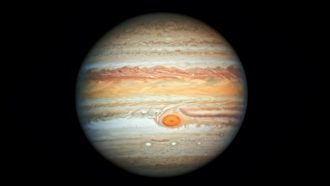 Space
SpaceBorn in deep shadows? That could explain Jupiter’s strange makeup
Dust that blocked sunlight might have caused the gas giant to form in a deep freeze, a new study suggests.
By Ken Croswell -
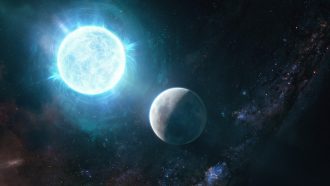 Space
SpaceMoon-sized white dwarf is the smallest ever found
This dead star is also spinning very fast and has an amazingly powerful magnetic field.
-
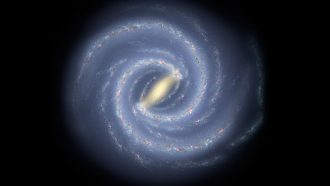 Space
SpaceSpin in this Milky Way bar may show cosmic dark matter does exist
A method akin to studying a tree’s rings reveals the timeline of a slowdown in those stars at the heart of our Milky Way galaxy.
-
 Space
SpaceHuge arc of galaxies is surprising and puzzling cosmologists
The arc appears to violate a cosmic rule that on such large scales, matter will be evenly distributed.
-
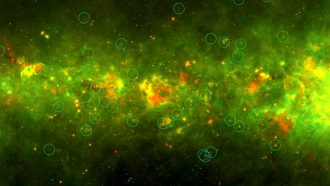 Space
SpaceThe Milky Way’s ‘yellowballs’ are clusters of baby stars
The mysterious cosmic objects — first spotted by citizen scientists — turn out to be infant stars of various masses.